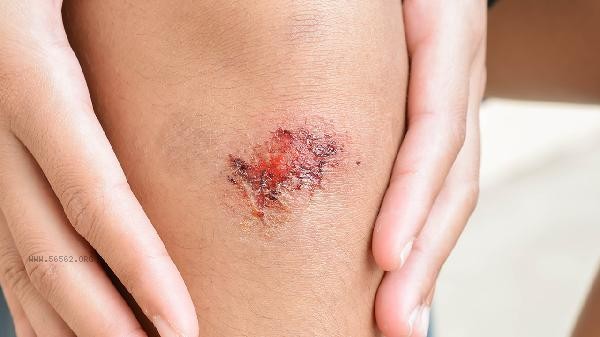Emotional trauma stress syndrome refers to a persistent psychological disorder that occurs in individuals after experiencing significant emotional trauma events, mainly manifested as repeated recollection of traumatic events, emotional numbness, excessive alertness, and other symptoms. Emotional trauma stress syndrome may be caused by sudden disasters, violent events, loss of loved ones, long-term emotional abuse, and other factors, usually accompanied by insomnia, anxiety, depression, social avoidance, somatic pain, and other reactions. It is recommended to seek timely psychological treatment and intervene through cognitive-behavioral therapy, exposure therapy, medication therapy, and other methods.

1. Sudden disasters
Natural disasters or accidents may directly trigger emotional trauma stress syndrome. Survivors often experience strong fear due to witnessing others' injuries or their own near death experiences, and overactivation of the amygdala in the brain leads to the solidification of traumatic memories. Typical manifestations include flashbacks and nightmares in disaster scenarios, which may last for months or even years. In the initial stage, symptoms can be alleviated through stabilization training, such as deep breathing exercises, safe island imagination techniques, etc. In severe cases, eye movement desensitization and reprocessing treatment should be combined.
2. Violent incidents
Direct attacks such as physical violence or sexual assault can undermine an individual's basic sense of security. In addition to typical traumatic reactions, victims often experience deep feelings of shame and self denial, and some may experience post-traumatic personality disorder. Psychological intervention should focus on rebuilding physical boundary awareness, restoring the connection between body and mind through dance therapy, mindfulness body scanning, and if necessary, combining antidepressants such as paroxetine to regulate neurotransmitters.
3. The sudden breakdown of important attachment relationships after the death of a loved one
may lead to complex grief reactions, especially in unconventional death situations such as sudden death or suicide. The bereaved often fall into a contradictory emotion of self blame and anger, resulting in traumatic reactions triggered by the deceased's belongings. The treatment of extended grief disorder needs to be carried out in stages, first dealing with traumatic memory and then dealing with grief. Empty chair technology can be used to help complete unfinished conversations, and combined with sertraline to improve emotional regulation function.

4. Long term emotional abuse
Continuous exposure to invisible traumas such as emotional neglect or verbal violence can lead to chronic traumatic stress. These patients have more insidious symptoms, often manifested as low self-worth, pathological attachment, and other characteristics. The prefrontal cortex function of the brain often shows abnormalities. Treatment should focus on rebuilding healthy interpersonal relationship templates, and group psychotherapy combined with emotional diary recording is more effective. For stubborn symptoms, transcranial magnetic stimulation therapy can be considered.
5. War Experience
The sustained threat to life experienced by combatants or civilians in the theater can lead to special types of traumatic reactions, often intertwined with moral damage. In addition to typical symptoms, it is often accompanied by compensatory behaviors such as aggressive behavior or substance abuse, and significant dysfunction of the hypothalamic pituitary adrenal axis. The treatment requires post-traumatic growth oriented therapy, combined with adaptive training for veterans. In severe cases, propranolol can be used to block the consolidation of fear memory. Patients with emotional trauma stress syndrome should maintain a regular daily routine, avoid alcohol and caffeine intake, and engage in aerobic exercise three times a week to promote the secretion of brain-derived neurotrophic factors. In terms of diet, increase the intake of deep-sea fish, nuts, and other foods rich in omega-3 fatty acids, and supplement with moderate amounts of vitamin B to help repair the nervous system. It is crucial to establish a stable social support network and participate in trauma rehabilitation mutual aid groups, but excessive discussion of trauma details should be avoided. During the acute phase of symptoms, the 478 breath method can be tried to alleviate anxiety attacks. In the long-term recovery phase, it is recommended to use artistic expression therapy to deal with suppressed emotions. If you experience thoughts of self harm or suicide, you should immediately contact the Psychological Crisis Intervention Center.





Comments (0)
Leave a Comment
No comments yet
Be the first to share your thoughts!